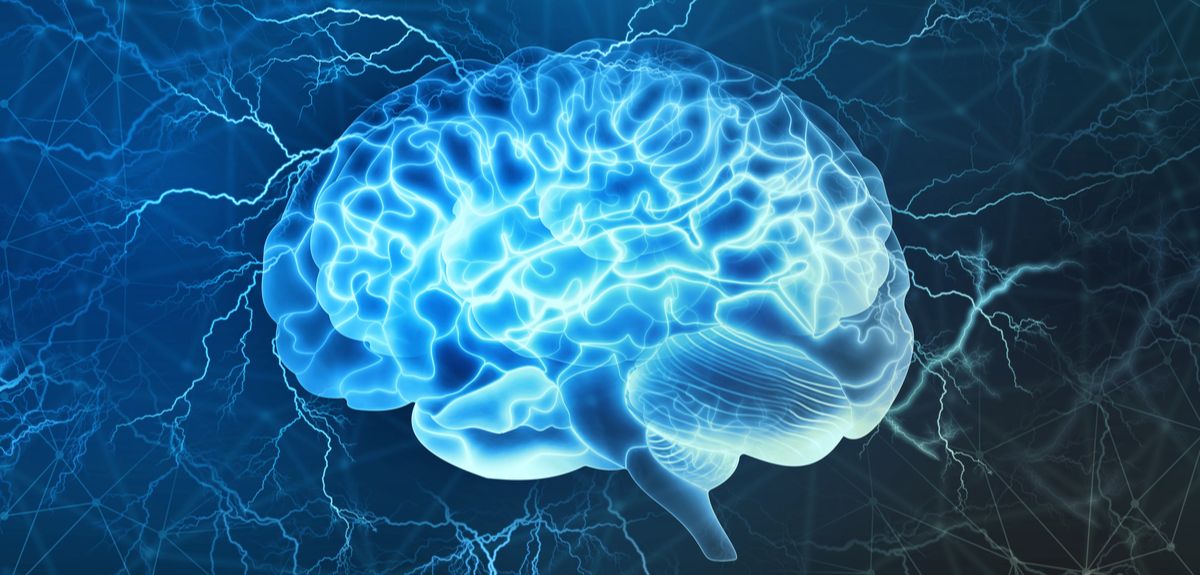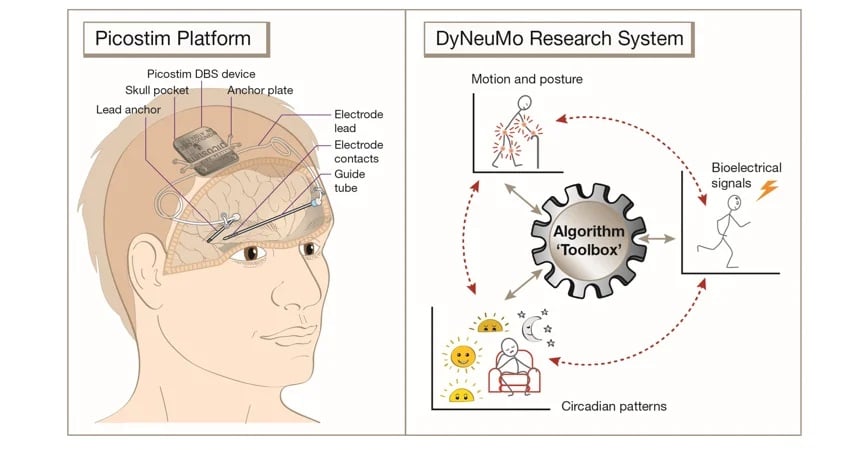
Image credit: Shutterstock
First UK trial of Deep Brain Stimulation for children with epilepsy begins
A teenager who is the first patient to take part in a UK clinical trial to use deep brain stimulation to treat epilepsy has seen his daytime seizures reduce by 80%.
Oran, who had been having severe epileptic seizures for eight years and often needed resuscitation, was the first child in the UK to have this device implanted at Great Ormond Street Hospital in October 2023, when he was 12 years-old. Now 8 months on, his seizures have dramatically reduced in frequency and severity thanks to the device.
The rechargeable device is mounted onto the skull and is attached to electrodes deep in the brain to reduce seizure activity. This is the first UK clinical trial measuring this type of treatment for children with epilepsy. The CADET pilot (Children’s Adaptive Deep brain stimulation for Epilepsy Trial) will now recruit three additional patients, which is funded by the Royal Academy of Engineering, before 22 patients take part in the full trial, which is being funded by GOSH Charity and LifeArc. The study is sponsored by University College London.

Martin Tisdall, Consultant Paediatric Neurosurgeon at GOSH and Honorary Associate Professor at UCL, said: 'Every single day we see the life-threatening and life-limiting impacts of uncontrollable epilepsy. It can make school, hobbies or even just watching a favourite TV show utterly impossible. For Oran and his family, epilepsy completely changed their lives and so to see him riding a horse and getting his independence back is absolutely astounding. We couldn’t be happier to be part of their journey. Deep brain stimulation brings us closer than ever before to stopping epileptic seizures for patients who have very limited effective treatment options. We are excited to build the evidence base to demonstrate the ability of deep brain stimulation to treat paediatric epilepsy and hope in years to come it will be a standard treatment we can offer.'
The CADET Pilot and Trial
Deep Brain Stimulation (DBS) is a treatment involving surgery to insert a small device which stimulates specific parts of the brain.
Unlike other DBS devices which are mounted on the chest with wires running up the neck to the brain, this device is mounted on the skull meaning the leads are less likely to break or erode as the child grows.
This device is also rechargeable through wearable headphones, which can be used while watching a video or interacting with a tablet. This also means it does not require surgery to replace it every three to five years.
Professor Tim Denison, University of Oxford and Royal Academy of Engineering Chair in Emerging Technologies, lead engineer said: 'Our mission is to design pioneering research systems for exploring the treatment of intractable health conditions such as paediatric epilepsy. Oran is the first child in the world to receive this device and we are extremely pleased that it has had such a positive benefit for him and his family.'
The device targets the thalamus, which is a hub for electrical signals in the brain. It is hoped that the device will block electrical pathways and consequently stop seizures from spreading. The device also has settings for optimisation towards seizure patterns, which although not utilised in this trial, could be used in the future for patients with LGS.
The CADET Pilot is funded by the Royal Academy of Engineering and sponsored by University College London. It is a collaboration between GOSH, UCL, King’s College London, the University of Oxford and a UK-based company: Amber Therapeutics. The second phase of the trial will be jointly funded through GOSH Charity and LifeArc’s Translational Research Accelerator Grants.
Oran’s story
Oran’s seizures started two weeks after his third birthday and up until the trial he hadn’t had a single day without a seizure. Many of his family all have a mutation in the SCNIB gene and have all dealt with seizures and epilepsy but all now have control of their seizures.
Unfortunately, Oran’s epilepsy became more severe, and often meant he stopped breathing and needed resuscitation. This means Oran needed round-the-clock care, as seizures could happen at any time of day, and he was at a significantly increased risk of Sudden Unexpected Death in Epilepsy (SUDEP).
Oran’s mum Justine said: 'Before the seizures began Oran was hitting all his milestones but as seizures became more severe, we lost more and more of Oran. From being a happy, energetic three-year-old, he struggled to engage in the world due to his medication and seizures – but he has still got his sense of humour. We’ve tried everything, but this is the first real shot we’ve been given in years, there has been no ‘what next’ until now. Unless somebody takes the first step on a trial like this, there is never going to be a better and there has to be a better for our family.'
Oran had surgery in October 2023 to insert the device and once he had recovered from the procedure the device was “switched-on”, delivering constant electrical stimulation to Oran’s brain. Since then Oran and his family’s life has completely changed.
Oran’s mum Justine said: 'We’ve been switched on since December and we’ve seen a big improvement, seizures have reduced and are less severe. That’s been great but the quality of life improvement has been invaluable for Oran. He’s a lot more chatty, he’s more engaged. He’s turned 13 and I definitely now have a teenager - he’s happy to tell me no. But that adds to his quality of life, when he can express himself better. The team really do have your back. We never felt alone, from last August [when we joined the trial]. We were made to feel part of the team and so was Oran. The future looks hopeful which I wouldn’t have dreamed of saying six months ago. For Oran, having hope brings excitement. It makes the future brighter and more attainable even. I’m really pleased that Oran gets to experience that.'
 Expert Comment: Chatbot-driven sexual abuse? The Grok case is just the tip of the iceberg
Expert Comment: Chatbot-driven sexual abuse? The Grok case is just the tip of the iceberg
 New study finds that stopping weight-loss drugs is linked to faster regain than ending diet programmes
New study finds that stopping weight-loss drugs is linked to faster regain than ending diet programmes